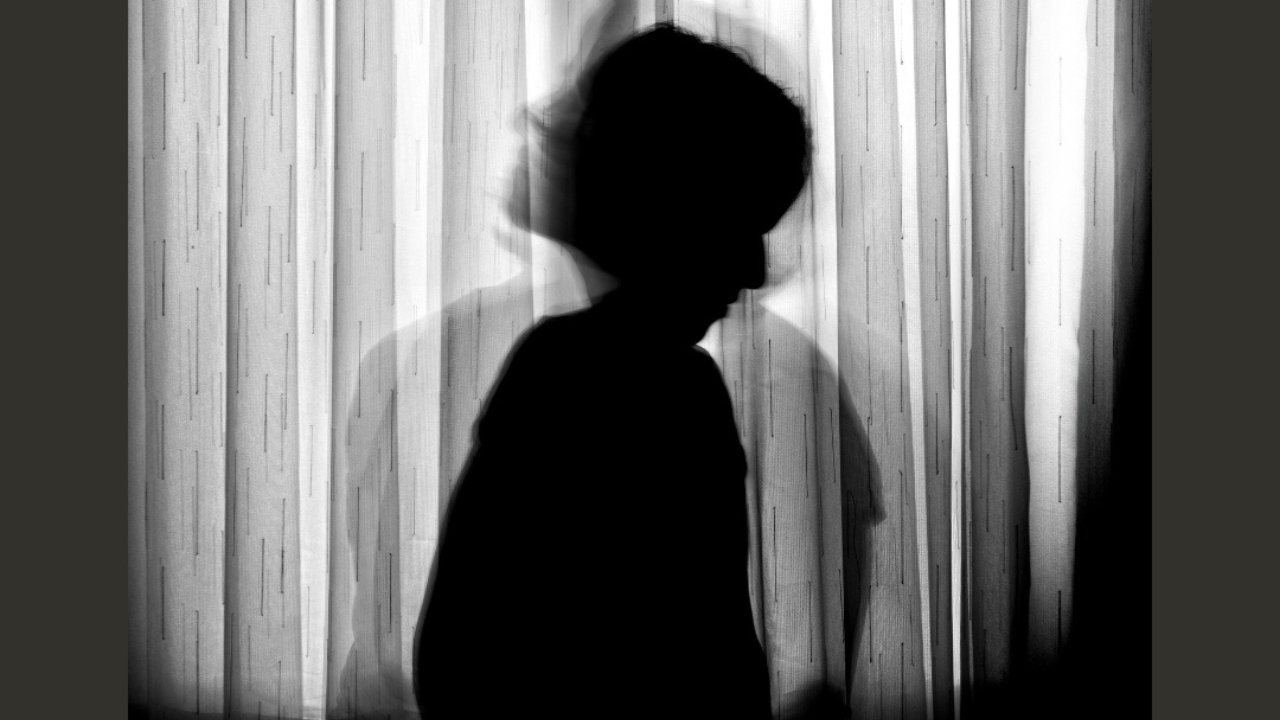Growing up in a community where women were destined commodities of sex trade, Ria defied expectations from a very young age. Our three-part interview narrates her life-altering experiences and her journey towards freedom from a predetermined fate.
A battle she has fought bravely since she was merely a 12-years old child, continues even today.
Q. Would you like to tell us something about your family and childhood?
I was born into the Bedia community, a reality whose implications I fully comprehended only later in life. Traditionally, Bedia women engage in the sex trade to sustain their families, a practice deeply rooted in our community. My parents let me finish school only until sixth grade. After that, I faced constant pressure to conform to this path. My aunts and cousins worked in Mumbai’s dance bars, providing the sole income for their families. I naively believed they held office jobs, picturing glass buildings with computers. I remember when I was in the 6th grade; my family’s involvement in a human trafficking case led to their imprisonment. They were accused of buying a girl for potential sex trade in Kolkata’s Sonagachi area. This ordeal intensified the pressure on me, leaving me to grapple with the complexities of my community’s expectations and my own aspirations.
Upon my parents’ release, my grandmother exerted intense pressure for me to enter the sex trade. Using my father’s health as leverage, she painted a dire picture of his condition. Despite my desire to study and become a writer, I felt compelled to help. My grandmother insisted I join my aunt in Mumbai, seconded by my mother, convincing me of my inevitable future. They also dismissed my refusal and even my threat of suicide, their expectation of my eventual surrender was clear.
Q. What was the turning point in your life?
I kept a detailed diary from childhood, chronicling my thoughts and daily life. When I was visiting Mumbai, the diary remained in the village. My father found my diary, which contained entries about difficult times and family problems. He misinterpreted this, accusing me of having a romantic relationship. Misleading my aunt, he told her that I was involved with someone and that I would commit suicide. This happened during my sixth-grade exams, adding to my stress. My aunt questioned the purpose of my writing; I explained it was an outlet for the emotional turmoil at home. My father, convinced of my ‘rebellion,’ decided to send me to Mumbai with my aunt to induct me into sex trade. Our financial situation was dire, and he felt this was the only solution. Despite my resistance, I was forced to comply. My aunt’s initial attempt to employ me at a Mumbai bar failed due to my young appearance. An agent then sent me to Bangalore for training in a bar for 5 months, before returning me to Mumbai to work.
My family’s demands escalated. The Bedia community has a horrifying custom of auctioning a girl’s virginity. An agent finds a buyer, and the highest bidder wins. My family planned this for me. I vehemently refused. They tried to persuade me with false promises of wealth and assured me I would not become pregnant by providing a pill. They even showed me a picture of an elderly man, claiming he was wealthy and would pay handsomely. However, my frequent illnesses and hospitalizations forced a delay in their plans.
Q. How did you cope with this challenging situation at such a young age?
I recall that I had discovered evidence on my father’s phone—an intimate video of him with another woman in Kolkata. He was under the influence of alcohol and did not appear sick or impoverished, contradicting his claims. I could picture myself in her place, and the image terrified me. He was supposed to be my protector, yet he sent me to that awful place. This betrayal shattered my trust and fueled my determination.
After recovering from my illness, I returned to the dance bar where I befriended someone named Vikas. Sharing my ordeal, I found solace in a genuine relationship. Vikas didn’t judge me for my background and suggested I seek legal help. With Vikas’s support, I approached the police. The police had a word with my family over call, and dismissed my complaint, claiming I was mentally unstable. Undeterred, I insisted on pursuing the case. The police, influenced by my grandmother’s claims, dismissed me again. Fearing for my life, I pleaded to be sent to a shelter home but was refused. They sent me with my family, and promised to visit my home the next day, a promise they broke.
My friend Vikas’s subsequent visit and offer to fund my education were met with deception too. The police called me in again but dismissed me without taking a statement. Overhearing a conversation between my grandmother and the officer, Vikas discovered their collusion. My grandmother portrayed me as unwilling to study and emphasized the family’s influence in the traditional sex trade business. The police handed me my own statement and dismissed me. They also mentioned that it is family tradition and that family matters.
After this incident, my family forced me to return to the village in the middle of the night under the guise of a family emergency. I knew this was a death sentence. My father’s reputation and the community’s expectations meant he would not hesitate to kill me to protect his image. My grandmother confiscated my phone, cutting off my only means of contacting Vikas.
Q. How did you manage to find your way out of the sex trade?
Reaching the village, I desperately messaged Vikas, “My family brought me here…” before my father cut me off. He beat me violently, questioning my desire for education. He scoffed at the idea and locked me in a room for six months. Daily beatings ensued, regardless of my menstrual cycle or health. Every inch of me bore the marks of this brutality. Even my siblings recoiled at my sight. My mother remained silent.
My family fabricated a story, claiming I resisted education and attempted suicide. They took me to a mental hospital where the doctor didn’t question me and simply wrote up a report based on their lies. Their sadistic joy came from taunting me with the possibility of shock therapy. The doctor prescribed daily medication, solidifying their narrative. Vikas made an attempt to contact the Mumbai police to inquire about my whereabouts. The police subsequently contacted the hospital, but the falsified mental assessment report prevented any further action from being taken.
During a family visit of relatives from Mumbai, I desperately agreed to return and obliged to their expectations of continuing the sex trade, just to escape the village and potential death, living in constant fear of violence inflicted on me. My other escape attempts involved seeking help from local advocates, who dismissed me as delusional.
After 6 months, while I was engaged in the sex trade in Mumbai and Bangalore for a while, I contacted Vikas in secret. He sent money to my family, gaining their trust, thus, allowing us to communicate. Determined to change my life, I convinced him to run away with me as my family’s greed was growing day by day.
We settled in Madhya Pradesh with a fake marriage certificate to rent a place. While discussing my enrollment in 10th grade, I received a shocking message: the Mumbai police accused Vikas of kidnapping a minor (me). My voter ID, unbeknownst to me, was fake, mentioning my age as 17.5 years. We didn’t want to leave our newfound life, but Vikas convinced me to return to Mumbai and discuss with the police. Our trust shattered when arriving at the police station; my family was waiting, crushing my hope for a better life.
My family staged a reunion, but their intentions were sinister. They coerced me into signing a false confession, claiming I eloped with Vikas. The police colluded, ignoring my protests. My family drugged me and took me to my village. My father constantly threatened me with violence and kept me captive. A court summons disrupted their plans, triggered by Vikas’s petition accusing my family of forcing me into sex trade.
Sensing a chance for freedom, I decided to speak out once back in Mumbai. I was trapped and overwhelmed, knowing there was much to learn and overcome. By this time, I knew the pursuit of freedom is a journey that outruns life, a double edged sword that simultaneously pulls you apart and forces you to confront each part that made you, you.
To be continued…
Note: Any personally identifiable information has been modified to protect the individuals’ identities.








